Written by Sgt. Joe Padula
2nd Brigade Combat Team PAO
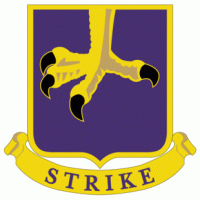
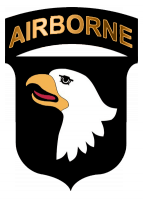
Fort Campbell, KY – On June 18th, 2010, an IED detonates in southern Afghanistan, taking away from the world a man holding a rifle and camera. He is a Soldier, a writer, a leader, a friend, a brother and a son; he is Staff Sgt. James P. Hunter, the combat correspondent who loved to tell the Soldier’s story.
Hunter was an expert at telling the Strike’s story on and off the battlefield. He helped put the 2nd Brigade Combat Team, 101st Airborne Division (Air Assault), also known as “Strike,” in newspapers, on television screens and uploaded to the web. His devotion to telling the Soldier’s story is still felt today and his unit, Strike’s Headquarters and Headquarters Company, honored their fallen hero during a morning combat focused physical training session, January 24th.

In full combat gear, the Soldiers of HHC ran five separate 800-meter runs, diagonal sprints with firing position dives, air assault rope climbs, 300-meters water jug carries, six foot wall climbs while throwing medicine balls over and dragging weighted medical liters for 100-meters. The event pushed the Soldiers to their physical limits, all relevant to how serious Hunter took his and his Public Affairs team’s physical training.
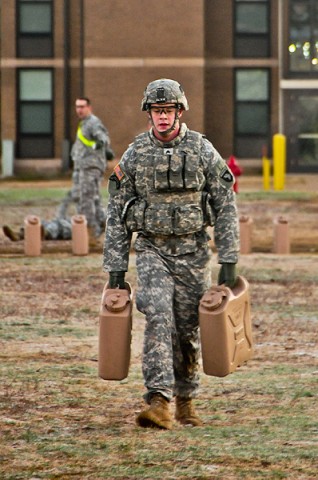 “We honor Staff Sgt. Hunter with this kind of event because he was a PT stud,” said Sgt. Jeffrey Stokes of HHC Strike, the master timer for the PT session and a friend of Hunters who worked closely with him while in Kandahar. “By his actions and words he motivated people and Soldiers to step up and give everything they could, which is exactly what he did in Afghanistan. He made sure everyone around him achieved the goals that needed to be achieved.”
“We honor Staff Sgt. Hunter with this kind of event because he was a PT stud,” said Sgt. Jeffrey Stokes of HHC Strike, the master timer for the PT session and a friend of Hunters who worked closely with him while in Kandahar. “By his actions and words he motivated people and Soldiers to step up and give everything they could, which is exactly what he did in Afghanistan. He made sure everyone around him achieved the goals that needed to be achieved.”
Some on the Soldiers taking part in the remembrance PT are new to Strike and never had the opportunity to meet Hunter, but they know about him and what he stood for.
“I didn’t know Staff Sgt. Hunter, but I know he meant a lot to the unit and his shop and I have found respect for him and the public affairs Soldiers,” said Pfc. Jeremey Russell, HHC, one of Strike’s new topographical analysts and a reader of the brigade’s magazine, The Heartbeat, a publication made well-known because of Hunter. “Because of what he did and what continues now, we get to read about what everybody in the unit does and reading the magazine is motivating.”
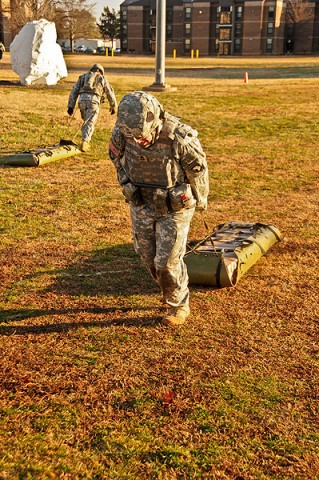 Upon completion of the timed event, the Strike Soldiers shared stories about the fallen hero. Some smiled as they remembered his good nature, some got teary-eyed from missing their friend. Nonetheless, Hunter is remembered and his actions overseas and at home were imperative to the mission.
Upon completion of the timed event, the Strike Soldiers shared stories about the fallen hero. Some smiled as they remembered his good nature, some got teary-eyed from missing their friend. Nonetheless, Hunter is remembered and his actions overseas and at home were imperative to the mission.
“The unit was successful in all our deployments due to dedicated Non-Commissioned Officers like Staff Sgt. James Hunter,” said Capt. John Chung, the commander of HHC Strike. Chung was the commander of Strike’s engineer company when he first knew of Hunter. “I’ve first heard about Staff Sgt. Hunter prior to our last OEF 10-11 deployment and when I heard my Sappers talk about him it was how he loved to be with Soldiers and capture their stories. We honor Staff Sgt. James Hunter because his dedication to mission accomplishment inspires each and every one of us.”
In Memory of Staff Sgt. James P. Hunter – We will Never Forget
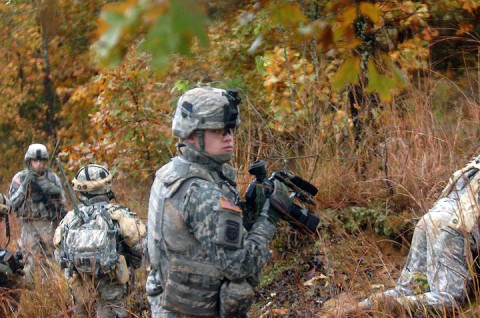
Transcript from Spc. Joe Padula at the memorial service for Staff Sgt. James P. Hunter in Afghanistan
“Where do you start, when you talk about Staff Sergeant James Hunter? / I mean, this man at the age of 25 had done so much, / more than most twice his age. // Right from the start of his army career, the man excelled. // At his basic training, where he was promoted, / then at his AIT, where he learned how to be a photojournalist, / was put in charge of his peers as their platoon guide. // The man was a born leader. // He first went to the 82nd Airborne where he began perfecting his craft. // Deployed to Iraq with them and then came to the 2nd Brigade Combat Team of the 101st Airborne Division and I / and a lot of other people here, / thank God that he did.
Here is where Sergeant Hunter started showing the world his gift. // He put the Strike Brigade on the Front pages of all the local newspapers with your stories, / the Soldier’s Stories and that’s what he loved to do, / he loved to tell the Soldier’s Story. // I need you to understand this. // During his second deployment to Iraq, / he single handily told your stories with the brigade’s magazine Heart Beat. // I mean by himself he patrolled, wrote, edited, designed and published a monthly magazine. // Do you understand how difficult that must have been? // The guy was doing, / by himself, / what would normally take an entire staff to do, / and that / was Sergeant Hunter. / He brought so much to the table. / He was given the reigns of the PAO shop during that deployment and continued to lead right to his very last mission.
My first day with the unit was the first time I met him; / and that was a great day. // Here I was, / at my first permanent duty station, standing with like five stuffed bags, lost beyond belief. // I was standing in this huge area with a dining facility to my left and this giant white rock to my right, / I had no idea, / but I see walking towards me this man, / with this powerful stride and this very serious and intimidating look. / I was like oh no, here we go, but when he got up to me, / he didn’t put me at parade rest, / he didn’t yell, / he just put his hand out to shake mine and said, / “so you’re PFC Padula.” I go, “hey how ya doin sergeant, anotha beautiful day,” and then he asked me, “do you really talk like that,” I go, “absolutely sergeant,” and then he said, / while shaking my hand with that firm grip and looking me right in the eye, / “alright then Padula, we’ll make it work.”
And he did. / He made it work so well. // His Public Affairs shop was non-stop. // From Strike Blitz’s to FRG stories, / from the Soldier of the month to the cook of the quarter, / ceremonies, promotions, week of the Eagles, everything and anything was a story / and he made sure / that your story was told, /without fail. // I miss my NCO, I miss my colleague and I miss my friend.
Under his watch, this PAO shop pushed out more products than any other PAO shop before him. // I mentioned before The Heart Beat, the brigade’s magazine during deployments, // Strike Honors, a weekly look at the regiment’s history // Strike Zone, and Now Strike Zone Afghanistan, the brigade’s TV show. // He even brought the unit into the social networking world with the Brigade Facebook Page that now has an audience in the thousands. // The blip on the radar screen for the Strike Brigade was so large that the Army Public Affairs Center, / that’s big Army herself, / came all the way from D.C. to say that he was leading the way in Army Public Affairs and not to stop. / And even in his death, / he won’t.
We will never forget his ability to lead. / We will never forget his ability to teach / nor will we ever forget him doing what he loved to do; telling the Soldier’s Story. // We will never forget Staff Sergeant James P. Hunter.”


